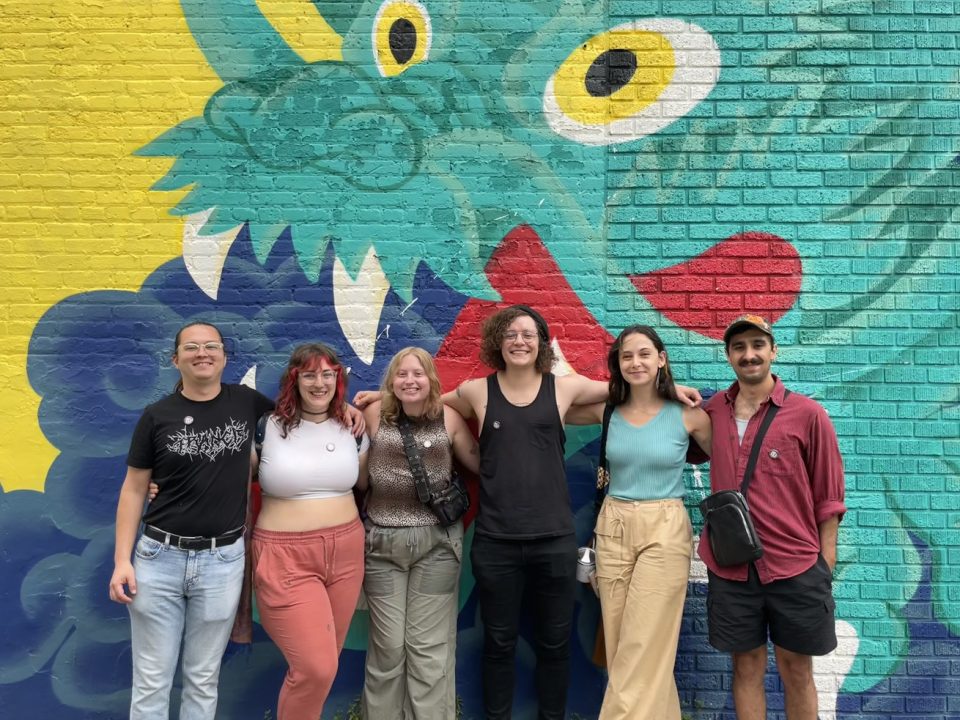
A Quang Legacy Chef Is Opening a Restaurant in the Former Ngon Bistro Space
June 18, 2024
A supermarket trip may soon look different, thanks to electronic shelf labels
June 19, 2024Staff at both restaurants announced their intent to unionize in tandem on Tuesday
Workers at Minneapolis restaurants Colita and all four locations of Café Cerés have announced their intent to unionize, delivering petitions to management on June 18. It’s the second major labor action in the Twin Cities restaurant industry this summer, following a unionization push at Uptown restaurant Kim’s in late May.
Workers at both restaurants are organizing with Unite Here Local 17, the broad hospitality union that represents more than 6,000 workers around the metro, including those at First Avenue, Indeed Brewing, and Kim’s. The two staffs organized in tandem because they are both a part of chef Daniel del Prado’s group of restaurants, though if they successfully unionize, they’ll function as two separate units, according to organizers.
The goals that workers say they hope to achieve by unionizing include securing higher wages, better health care and paid time off, and more consistent scheduling. But an overarching mission, they say, is to gain a seat at the table: to feel respected by management, to have a voice, and to apply their expertise as industry workers to improve both their restaurants’ day-to-day operations and the service industry itself.
Eater reached out to del Prado and Shawn McKenzie, co-founder of Café Cerés, for comment, but did not hear back by the time of publication.
Segundo Vintimilla, who’s been at Colita for five years, works all the kitchen’s stations: smoker, flat top grill, and sautee. “Cooking is something I love to do,” he wrote in a statement translated from Spanish. “But right now, I feel overwhelmed and stressed. I have no job security. They can just tell you you’re done one day.” Earlier this year, he wrote, he had surgery for a hernia and lost about a month of income. He said he wants to be treated with greater respect in the kitchen. “We’re told to work really fast,” he wrote. “I’ve been doing this for 10 years, I know what I’m doing, I get my work done.”
Sara Zabinski, a server at Colita, has worked in the restaurant industry for about 10 years. “I’m somebody who didn’t have much access to get a college degree, so the industry has ironically been my only form of stability for my life,” she said. But it’s still a “baseline of chaos”: seasonal fluctuations in business make it hard to maintain a steady income, especially given Minnesota’s long winter, and though she does have access to earned sick and safe time (as all Minnesota workers do), sick pay doesn’t match the money she would earn during a normal shift.
Both restaurants offer workers a health insurance plan, but Zabinski and other workers hope for improvements. “As a person who has dealt with more and more health issues over the past few years, and somebody that’s been sinking a lot of money in hospital bills that I can’t keep up on anymore, that’s something that has really put motivation [to unionize] behind my back,” she said. Mariam Karkache, a bar lead at Café Cerés, said it’s been challenging to access adequate mental health care on the company’s plan.
Silvia Jimenez came to the Twin Cities from Mexico three years ago — after working at another restaurant, she landed at Colita, where she started as a food runner and was promoted to server a year later. “I personally want my hours to be respected, and to have better wages,” she said through a Spanish interpreter. At the beginning of the summer, she requested to be scheduled for five days per week, but was recently cut to four days because the restaurant was “overstaffed,” she said. It’s a crucial difference because she attends school in the winter and relies on summer work as a sizable part of her income — with reduced hours, she doesn’t have the money to pay for school, rent, and bills.
Jimenez said she wants to improve communication between management and staff to have a more “harmonious” work environment with mutual respect, where workers’ voices are heard. She’s also hoping for a more flexible PTO and vacation policy.
Karkache emphasized that she and her coworkers care about Café Cerés, their guests, and their community. “We see a lot of potential with improvements for the cafe and improvements for our working conditions,” she said. “I hope that [management] can see that we’re coming from a place of good faith, and we want to collaborate and have a conversation.”
Zabinksi said her motivations extend beyond her own working conditions and benefits: She wants to help improve the service industry itself, and make it more accessible to a wider range of people — something that people “actually want to stay in,” knowing that they’ll be supported. Karkache, similarly, wants workers to deeply consider their power to ask for more from a workplace.
“I implore you to think about your lives, your working conditions, how work affects your life, and also ways that you want to see improvement within your workplace, for yourself and for your peers,” Karkache said. “I think it’s more than reasonable to have a seat at the table with management at your shop.”






